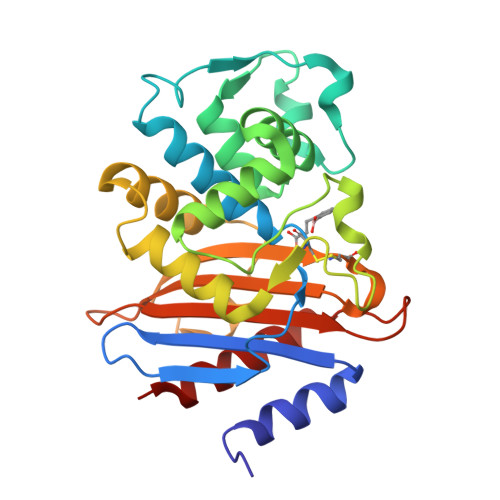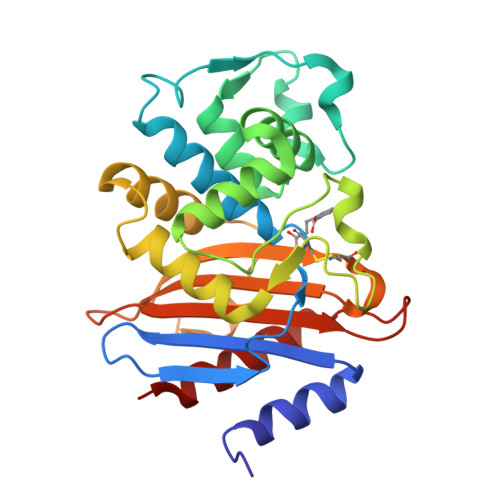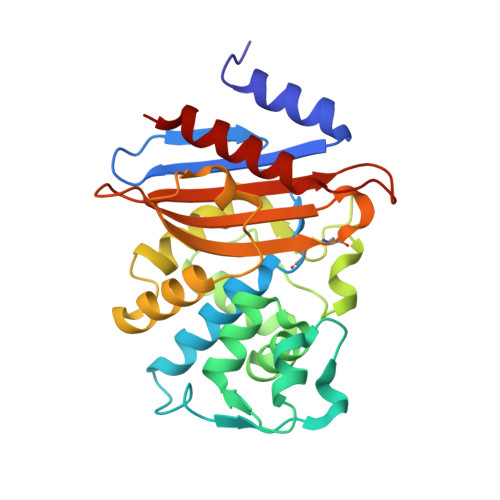Phenylboronic Acid Derivatives as Validated Leads Active in Clinical Strains Overexpressing KPC-2: A Step against Bacterial Resistance.
Celenza, G., Vicario, M., Bellio, P., Linciano, P., Perilli, M., Oliver, A., Blazquez, J., Cendron, L., Tondi, D.(2018) ChemMedChem 13: 713-724
- PubMed: 29356380
- DOI: https://doi.org/10.1002/cmdc.201700788
- Primary Citation of Related Structures:
5LL7, 5MGI - PubMed Abstract:
The emergence and dissemination of multidrug resistant (MDR) pathogens resistant to nearly all available antibiotics poses a significant threat in clinical therapy. Among them, Klebsiella pneumoniae clinical isolates overexpressing KPC-2 carbapenemase are the most worrisome, extending bacterial resistance to last-resort carbapenems. In this study, we investigate the molecular recognition requirements in the KPC-2 active site by small phenylboronic acid derivatives. Four new phenylboronic acid derivatives were designed and tested against KPC-2. For the most active, despite their simple chemical structures, nanomolar affinity was achieved. The new derivatives restored susceptibility to meropenem in clinical strains overexpressing KPC-2. Moreover, no cytotoxicity was detected in cell-viability assays, which further validated the designed leads. Two crystallographic binary complexes of the best inhibitors binding KPC-2 were obtained at high resolution. Kinetic descriptions of slow binding, time-dependent inhibition, and interaction geometries in KPC-2 were fully investigated. This study will ultimately lead toward the optimization and development of more-effective KPC-2 inhibitors.
Organizational Affiliation:
Dipartimento di Scienze Cliniche Applicate e Biotecnologie, Università dell'Aquila, Via Vetoio 1, 67100, L'Aquila, Italy.



















